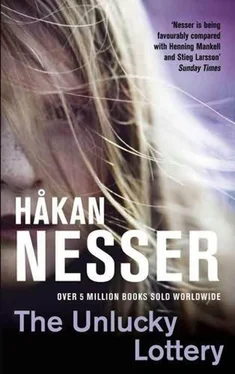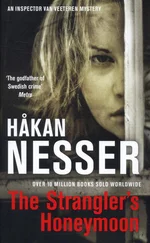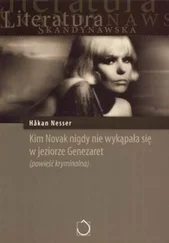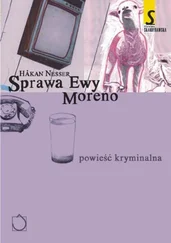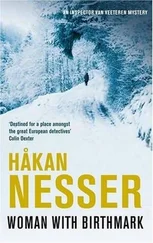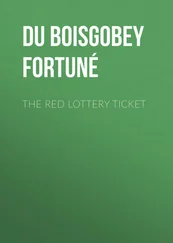Yes, why indeed, Münster thought.
The man sitting opposite him on the visitor’s chair was big and heavy, with a receding hairline and the same ruddy complexion as his sister. There was something superficial, disengaged, in his way of speaking and behaving – as if he were not really with it – and Münster assumed, for the time being, that it had something to do with his profession.
Mauritz Leverkuhn worked as a salesman and distributor of paper cloths, serviettes and candle-rings to department stores and supermarkets.
‘I’d just like a few bits of information,’ said Münster. ‘So far we don’t have much to go on with regard to the murder of your father, so we need to follow up any leads we can manage to dig up.’
‘I understand,’ said Mauritz.
‘When did you last see him, for instance?’
Mauritz thought for a few moments.
‘A few months ago,’ he said. ‘I was here on a sales mission, and I called in on them briefly. Drank coffee. Gave Mum a bottle of cherry liqueur – it was her name day.’
‘So you didn’t have all that much contact with your parents, generally speaking?’
Mauritz cleared his throat and adjusted his yellow and blue striped tie.
‘No,’ he said. ‘We didn’t… We don’t have. None of us.’
‘Why?’
He shrugged.
‘Is it necessary?’
Münster refrained from responding.
‘Do you have any children?’
‘No.’
‘So there aren’t any grandchildren at all, then?’
Mauritz shook his head.
‘Are you married?’
‘No.’
‘Have you been?’
‘No.’
Münster waited a few seconds, but it was apparent that Mauritz had no intention of saying anything off his own bat.
‘What’s the relationship between you and your sisters?’ he asked. ‘Do you see much of each other?’
‘What has that got to do with it?’
He shifted his position on his chair, and fingered the crease of his trousers.
‘Nothing, I assume,’ said Münster. ‘It’s difficult to say what is relevant at this early stage. And what isn’t.’
We’ve got a right bloody bundle of fun here, he thought – and it struck him that the same applied to the family as a whole. None of them was likely to be the life and soul of any party: not the ones he’d been in contact with at least. Woodlice, as Reinhart used to call them.
But perhaps he was being unfair. He didn’t feel all that much of a livewire himself, come to that.
‘What about your elder sister?’ he asked. ‘She’s unwell, if I’m not mistaken.’
Mauritz suddenly looked positively hostile.
‘You have no reason to drag her into this,’ he said. ‘Our family has nothing to do with what has happened. Neither me nor my sisters. Nor my mother.’
‘How can you be so sure?’ said Münster.
‘What?’
‘How can you be so sure that none of them is involved? You don’t have any contact with them, after all.’
‘Shut your trap,’ said Mauritz.
Münster did as he was told. Then he pressed the intercom and asked fröken Katz to serve them some coffee.
‘Tell me what you were doing last Saturday night.’
The coffee had induced a climate change for the better, but only marginally.
‘I was at home,’ said Mauritz sullenly, after a couple of seconds’ thought. ‘Watching the boxing on the telly.’
Münster wrote that down as a matter of routine.
‘What time was that?’
Mauritz shrugged.
‘Between nine and twelve, roughly speaking. Surely you don’t think that I drove here and murdered my father? Are you soft in the head?’
‘I don’t think anything,’ said Münster. ‘But I’d like you to be a bit more cooperative.’
‘Oh yes? And how do you think I’m going to be able to cooperate when I’ve got bugger all to say?’
I don’t know, Münster thought. How many years is it since you last smiled at anything?
‘But what do you think?’ he asked. ‘We have to try to find somebody who might have had a motive to kill your father. It’s possible of course that it was a pure act of madness, but that’s not certain. There might have been something behind it.’
‘What, for instance?’ Mauritz wondered.
‘That’s something we hoped you might be able to tip us off about.’
Mauritz snorted.
‘Do you really think I’d shut up about something like that, even if I knew anything?’
Münster paused, and checked the questions he had written down in advance.
‘When did they move to Kolderweg?’ he asked.
‘In 1976. Why do you want to know that?’
Münster ignored the question.
‘Why?’
‘They sold the house. We youngsters had moved out.’
Münster made a note of that.
‘He got a new job as well. He’d been out of work for a while.’
‘What kind of a job?’
‘Pixner Brewery. I’m sure you know about that already.’
‘Could be,’ said Münster. ‘And before that you lived down at Pampas, is that right?’
Mauritz nodded.
‘Pampas, yes. Shoeboxes for the working class. Four rooms and a kitchen. Twenty square metres of lawn.’
‘I know,’ said Münster. ‘And where did you move to when it became too cramped?’
‘Aarlach. I started at the commercial college in 1975. This can’t be important, surely?’
Münster pretended to check his notebook again. Mauritz had folded his arms over his chest and was gazing out of the window at the rain-filled clouds. His aggressiveness seemed to have lapsed into genuine lethargy again. As if he were sitting there reflecting the weather, Münster thought.
‘Who do you think did it?’ he asked speculatively.
Mauritz turned his head to look at Münster dismissively.
‘I don’t know. How the hell should I? I haven’t had any real contact with my father for over twenty years, and I’ve no idea who he used to knock around with. Can’t we stop all this crap now so that I can get away from here?’
‘All right,’ said Münster. ‘Just one more thing. Do you know if your father was not short of a bob or two? If he had any cash stashed away, for instance?’
Mauritz had already stood up.
‘Rubbish,’ he said. ‘He worked for half his life at Gahn’s, and for the other half at the brewery. Those are not the kind of places at which you can scrape together a fortune. Goodbye, Intendent!’
He started to reach out over the desk with his hand, but changed his mind halfway through and put it in his pocket instead.
‘Do you miss him?’ Münster asked, but the only response he got was a vacant look. Nevertheless, Mauritz paused in the doorway.
‘When I was a teenager I actually considered applying to police college,’ he said. ‘I’m glad I didn’t.’
‘So are we,’ Münster muttered when the door had closed. ‘Very glad indeed.’
When he was alone in the room, he went to the window and looked out over the town, as he generally did. Over the streets, rooftops and churches; over Wejmargraacht and Wollerims Park, where the grey mist enveloped the trees in a blanket of damp, obliterating outlines. Like an amateurish watercolour painting, he thought, in which the colours have spread and mixed with one another and with the water. The skyscrapers a little further off, up on the ridge at Leimaar, could hardly be made out, and the thought struck him that if there was any town in the whole world where a murderer had a good chance of hiding away, it was here.
When he looked down he saw Mauritz Leverkuhn walking across the car park towards a white and fairly new Volvo. Some kind of company car, presumably – with the boot and back seat crammed full of serviettes and candle-rings in every cheerful colour imaginable. For the benefit of mankind and their endless striving after the greatest possible enjoyment.
Читать дальше
